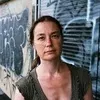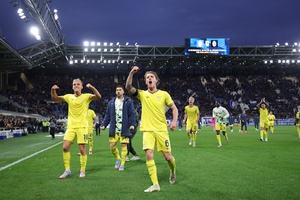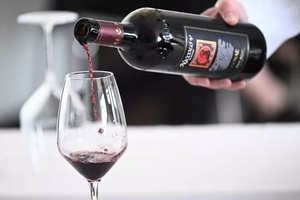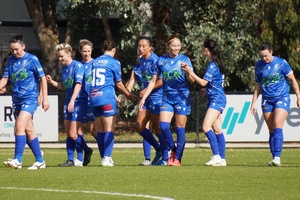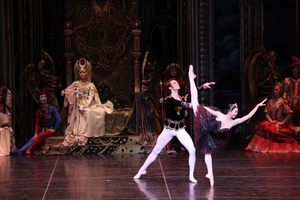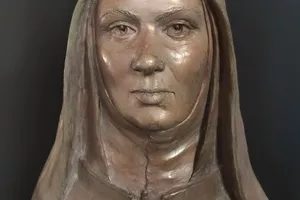Thanks to the foresight of their parents – Italian immigrants who risked and sacrificed so much – these four women were able to receive a well-rounded education and, consequently, forge a life as successful professionals in their chosen fields.
Awarded the Medal of the Order of Australia, Clinical Professor Flavia Cicuttini is the head of Rheumatology at the Alfred Hospital and the director of the Musculoskeletal Unit at Monash University.
Cicuttini has made significant contributions to the research of musculoskeletal illnesses.
The eldest daughter of Dante and Elsa Cicuttini, who migrated to Australia from Udine in the 1950s, she grew up on her family’s poultry farm in Carrum Downs.
Cicuttini’s academic success did not exempt her from manual labour, as she and her siblings helped out around the farm on early mornings and during the holidays.
“Our family was very traditional and patriarchal, but we were never discouraged from pursuing our studies,” she recounted.
“My mother was a teacher in Italy and my father, despite having left school in the fifth grade, was incredibly clever; he knew how to fix everything and had a solution to every problem.
“I believe that all migrants are pretty amazing, in the sense that they’re different.
“Anybody who has the courage to leave their country to make a better life for themselves is extraordinary.”
Having always been gifted at science and maths, Cicuttini initially applied for an engineering degree but changed her mind at the last minute, deciding to study medicine instead at Monash University.
After completing a laboratory PhD at the Walter and Eliza Hall Institute and a Master of Epidemiology in London, Cicuttini returned to Monash University to begin the first experimental research on the use of MRIs for musculoskeletal pathology.
Cicuttini considers herself fortunate to not have experienced gender discrimination over the course of her successful career; however, she stresses that even in the absence of obvious obstacles, the professional path of women is always an uphill one, especially when family comes into play.
“I’m lucky to have a husband who has never made me choose between work and family,” Cicuttini expressed.
“He’s the son of two doctors and grew up with a nanny who was part of the family.
“Despite having been raised by a nanny, Kit was incredibly close with his family and this gave me a model to follow, showing me that I could work and be a mother.”
Cucuttini dedicates the prestigious award to her parents, her husband, and their children, Jessica and Tim.
Professor Amalia Di Iorio was also awarded the Medal of the Order of Australia, for her significant contributions to tertiary education, skills development and gender studies.
Having strong Italian roots, Di Iorio grew up with Abruzzese parents, Antonio (Tony) and Linda Di Iorio, as well as her aunt and uncle, living in the house next door to their shop on Lygon Street (first the tailor Di Iorio Brothers, which then became the restaurant Casa Di Iorio).
To the delight of her father, she attended the prestigious Genazzano College.
“My father had incredible foresight and he always encouraged me and my sister, Elide, to study hard,” Di Iorio reflected.
“This was critical for the development of my self-belief.
“After speaking with many women in leadership positions and researching, I’ve discovered that self-belief is often nurtured during childhood, usually by the presence of a very strong parental figure who is not only supportive but also highlights their daughter’s successes.”
Di Iorio – who dedicates the honour to her parents and children, Marco and Alessia – began taking an interest in women’s issues at a very young age, and coincidentally worked at Il Globo for a period of time.
In 1983 at the age of 21, when she was helping her parents in the Carlton restaurant, Di Iorio was selected to participate in the Miss Italian Community Quest and won the title, before going on to be crowned Victorian Charity Queen.
By chance, the director of the Miss Italian Community Quest, who worked in the office of Il Globo’s founder, Ubaldo Larobina, went on maternity leave and asked Di Iorio to replace her.
“I have very fond memories of those times and I met some incredible people,” Di Iorio recalled.
“It was rewarding to see the young girls in this competition mature over the course of a year and, honestly, I saw a less superficial side of beauty contests; one that provided opportunities.
“The girls had to put themselves out of their comfort zones and speak publicly to raise funds, and in that period, we broke fundraising records.
“This experience made me want to provide opportunities for women and showed me that things aren’t always as they seem.
“My commitment to women started right there.”
Having studied accounting and international finance, Di Iorio is now a professor of finance.
More recently, she has conducted studies on financial literacy and how women make financial decisions, finding that whilst they are very risk-averse and prudent with their choices, they are likely to be influenced by the men in their lives, perhaps because they lack self-efficacy.
She is very passionate about promoting self-belief in women and has hosted a plethora of events advocating for women in leadership.
Di Iorio’s connection with the Italian community has been uninterrupted and for four years now, she has been the chair of the International Specialised Skills Institute.
Founded around 30 years ago by Sir James Gobbo, the institute promotes continuous professional development and raises money to send talented Australians from all kinds of sectors overseas to enhance their skills.
Professor Dianna Joesphine Magliano, coordinator of the Master in Public Health at Monash University and Director of the Diabetes and Public Health Unit at the Baker Institute, was also awarded the Medal of the Order of Australia for her contributions to epidemiological research.
She dedicates the award to her parents, originally from Lipari and Salerno, her two sisters and her daughter, Isabella, for their constant encouragement.
Inquisitive from a young age, Magliano always took an interest in mathematics and science.
Over the course of her career, she has often wondered what the women who studied science with her are doing now and questioned why there are not more women in leading roles in the field.
When asked why there are fewer women in leadership roles, Magliano expressed that there are many explanations.
“There is certainly an unconscious bias,” she articulated.
“Having children and not being supported; inflexible workplaces; and some women don’t have as much confidence as men do, who are more likely to be hired.
“But this is slowly changing.”
To tackle this prevalent issue, Magliano has put strategies in place to ensure that there are more women in leadership roles.
She and her team at the Baker Institute aim for 40 per cent of laboratory heads to be women by 2024.
Magliano’s proudest moment was receiving the Athena SWAN Science in Australia Gender Equity (SAGE) award in 2018 and, of course, being awarded the Medal of the Order of Australia this year.
Meanwhile, Doctor Teresa De Fazio was awarded the Medal of the Order of Australia, for her service to tertiary education.
De Fazio recalls the enormous sacrifices her parents made to provide her and her siblings with an education, and the way they instilled in her the values of respect and generosity that she still holds today in her personal and professional life.
With a Calabrese father and Abruzzese mother, De Fazio grew up in the multicultural suburb of Fawkner, where her parents never hesitated to share the little they had with the community.
“They taught me the foundations of social justice, and I have them to thank for the direction my life has taken,” De Fazio said.
“I think the values that I got from my parents were a strong work ethic, a sense of justice and the ability to look beyond appearances and labels, seeing the value of the person instead.”
De Fazio maintains these values to this day and they are reflected in her work.
After completing an honours degree in Italian, she lived in Italy for five years perfecting the language at the University of Rome, in Perugia and at Ca’ Foscari in Venice.
Upon her return to Australia, she followed her vocation: teaching English to migrants, refugees and international students.
Knowing the devastating power that racism can have, De Fazio felt that this experience was a way of making a difference in multicultural Australia.
She committed herself to promoting multiculturalism at Victoria University, as manager of the Cultural Diversity Office, and established initiatives for the community through the Victorian Multicultural Commission, Multicultural Arts Victoria and Edmund Rice Community and Refugee Services (and from July, will also be the president of the Zoos Victoria Committee).
On the difficulty of balancing family and work, De Fazio shared a story of when her daughter was young.
“I had to go to school and get her because she was not feeling well and I left the office early,” she recounted.
“My boss told me: ‘This is why you’ll never get ahead; your priorities as an Italian woman will always be your family and you’ll never do anything in your life or career’.
“After that I decided to leave that job; but today, as a leader myself, I always do a lot of work around leadership, inclusivity, diversity and equality.”
Today, De Fazio has her own consultancy and works with many agencies, teaching them about inclusivity and how to get the best out of their staff.
De Fazio dedicates the honour to her “sources of inspiration”: her parents Pasquale and Maria, her brothers Vincenzo and Antonio, and her children, Luca and Isabella.
She made sure to mention that this award is for everyone who has played a part in creating a more equal and inclusive Australia.
Ultimately, the thread tying these four women together goes beyond their Italian heritage and the prestigious award they received.
Rather, it is the way they have all pursued successful careers and become role models for the next generation of young girls.
